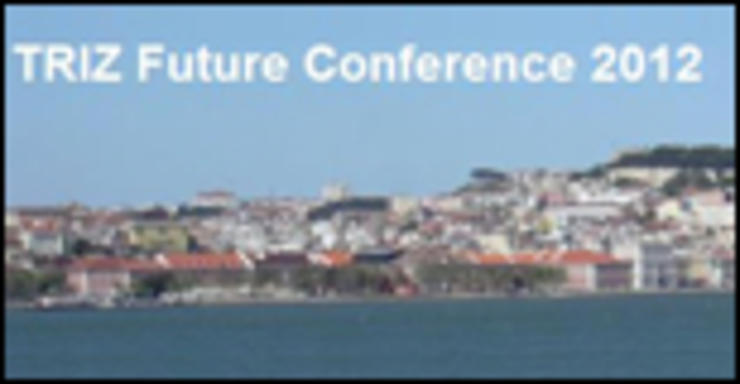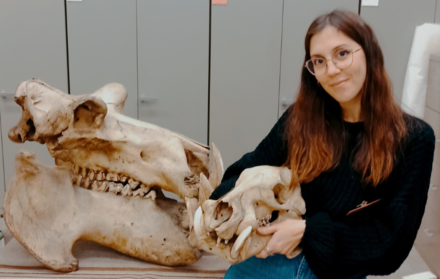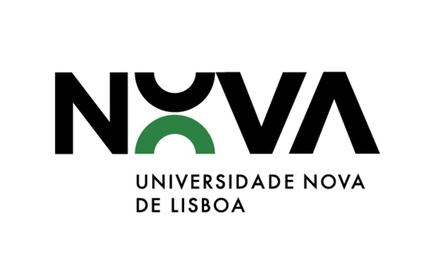ETRIA World TRIZ Future Conference 2012
24–26th October 2012 | FCT/UNL
conference site: http://www.trizportugal.com/
The ETRIA World TRIZ Future Conference 2012 will take place at the Faculty of Science and Technology, 24–26th October 2012.
The Conference is organized by the New University of Lisbon, ETRIA – The European TRIZ association and is sponsored by CIRP, the international Academy for Production Engineering.
The 12th ETRIA World TRIZ Future Conference will be focused on the process of systematic innovation, TRIZ best practices, related research activities, and applications in industry and education.
A broad spectrum of subjects in various fields will be presented and debated with experts, practitioners and newcomers to TRIZ.
The Conference aims at linking industrial companies, research centers, educational organizations and individuals to share the experience on systematic innovation and promote TRIZ diffusion worldwide.
It will provide an international forum for exchanging new ideas on TRIZ and knowledge-based innovation, presenting recent achievements by the TRIZ community and enabling further advances and collaboration also with the industrial community.
The official language is English.
The conference site is: http://www.trizportugal.com/
-----------------------------------------------------------------------------------
12th ETRIA TRIZ Future Conference Chairs
TRIZ - Theory of Inventive Problem Solving
TRIZ is an international science of creativity that relies on the study of the patterns of problems and solutions, not on the spontaneous and intuitive creativity of individuals or groups.
The fundamental hypothesis that underpins the development of TRIZ is that there are universal principles of creativity that are the basis for creative innovations that advance technology. If these principles could be identified and codified, they could be taught to people to make the process of creativity more predictable.
The key findings of TRIZ research over the past years may be summarized as follows:
1. Problems and solutions are repeated across industries and sciences. The classification of the contradictions in each problem predicts the creative solutions to that problem.
2. Patterns of technical evolution are repeated across industries and sciences.
3. Creative innovations use scientific effects outside the field where they were developed.
TRIZ, the "Theory of Inventive Problem Solving" is a living science and a practical methodology. In the last decades, research has proceeded in several stages. We are assisting to a growing interest on TRIZ especially within the industrial context. Large and small companies worldwide are using TRIZ at many levels to solve problems and to develop strategies for future technologies and products.
The Conference aims at creating a forum to enable the interchange of research, practice, know-how and experience between industrial companies, research centres, educational organizations, academic institutions, and individuals on systematic innovation, namely in areas such as:
·Business systems
·Competitive product design and innovation
·Decision Analysis and Methods
·E-Business and E-Commerce
·Ecological Engineering
·Engineering Economy and Cost Analysis
·Engineering Education and Training
·Global Manufacturing and Management
·Green Supply Chain
·Human Factors
·Information Flow, Processing and Engineering
·Intelligent Systems
·Inventory Optimization
·Knowledge Management
·Lean Management
·Logistics Management
·Manufacturing Systems & Strategy
·Organization Management
·Production Planning and Control
·Project Management
·Quality management and Six Sigma
·Queue Optimization
·Reliability and Maintenance Engineering
·Safety, Security and Risk Management
·Service Innovation and Management
·Supply Chain Management
·Systems Modeling and Simulation
·Technology and Knowledge Management
...
It will provide an international forum for exchanging new ideas and recent achievements by the TRIZ community and enabling further advances and collaboration also with the industrial community.
Papers are invited from industry, universities and research centers. Conference papers can cover theoretical and experimental TRIZ research, educational aspects, tools and techniques, as well as industrial experience and practices. Both technology and non-technology related papers are welcome.
The conference foresees two broad types of contributions: scientific and practitioner. Scientific contributions will normally deal with theoretical research on TRIZ theory and the development thereof.
Practitioner's contributions will typically deal with applied TRIZ experiences and developments in academia, industry and education.
The conference program includes academic, practitioner, and industrial sessions.






















